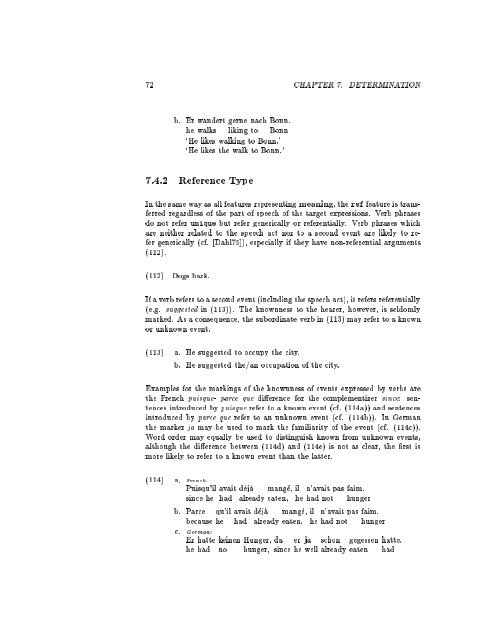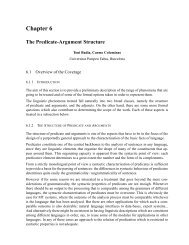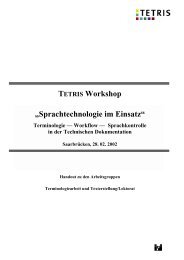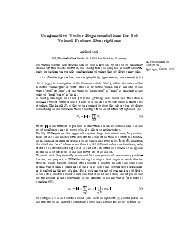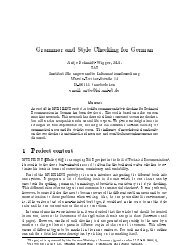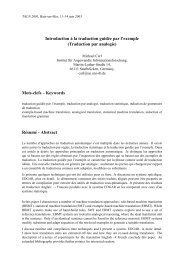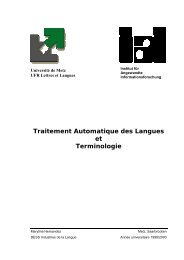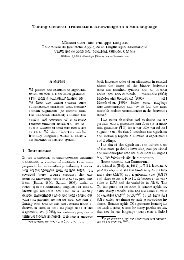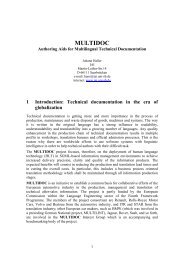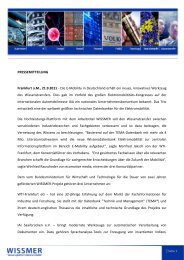Linguistic Modeling for Multilingual Machine Translation
Linguistic Modeling for Multilingual Machine Translation
Linguistic Modeling for Multilingual Machine Translation
Create successful ePaper yourself
Turn your PDF publications into a flip-book with our unique Google optimized e-Paper software.
72 CHAPTER 7. DETERMINATION<br />
b. Er wandert gerne nach Bonn.<br />
he walks liking to Bonn<br />
`He likes walking to Bonn.'<br />
`He likes the walk to Bonn.'<br />
7.4.2 Reference Type<br />
In the same way as all features representing meaning,theref feature is transferred<br />
regardless of the part of speech of the target expressions. Verb phrases<br />
do not refer unique but refer generically or referentially. Verb phrases which<br />
are neither related to the speech act nor to a second event are likely to refer<br />
generically (cf. [Dahl75]), especially if they have non-referential arguments<br />
(112).<br />
(112) Dogs bark.<br />
If a verb refers to a second event (including the speech act), it refers referentially<br />
(e.g. suggested in (113)). The knownness to the hearer, however, is seldomly<br />
marked. As a consequence, the subordinate verb in (113) may refer to a known<br />
or unknown event.<br />
(113) a. He suggested to occupy the city.<br />
b. He suggested the/an occupation of the city.<br />
Examples <strong>for</strong> the markings of the knownness of events expressed by verbs are<br />
the French puisque- parce quedierence <strong>for</strong> the complementizer since: sentences<br />
introduced by puisque refer to a known event (cf. (114a)) and sentences<br />
introduced by parce que refer to an unknown event (cf. (114b)). In German<br />
the marker ja may be used to mark the familiarity of the event (cf. (114c)).<br />
Word order may equally be used to distinguish known from unknown events,<br />
although the dierence between (114d) and (114e) is not as clear, the rst is<br />
more likely to refer to a known event than the latter.<br />
(114) a. French:<br />
Puisqu'il avait deja mange, il n'avait pas faim.<br />
since he had already eaten, he had not hunger<br />
b. Parce<br />
because<br />
c. German:<br />
Er<br />
he<br />
hatte<br />
had<br />
qu'il<br />
he<br />
keinen<br />
no<br />
avait<br />
had<br />
deja mange, il n'avait pas faim.<br />
already eaten, he had not hunger<br />
Hunger,<br />
hunger,<br />
da er ja schon gegessen hatte.<br />
since he well already eaten had


